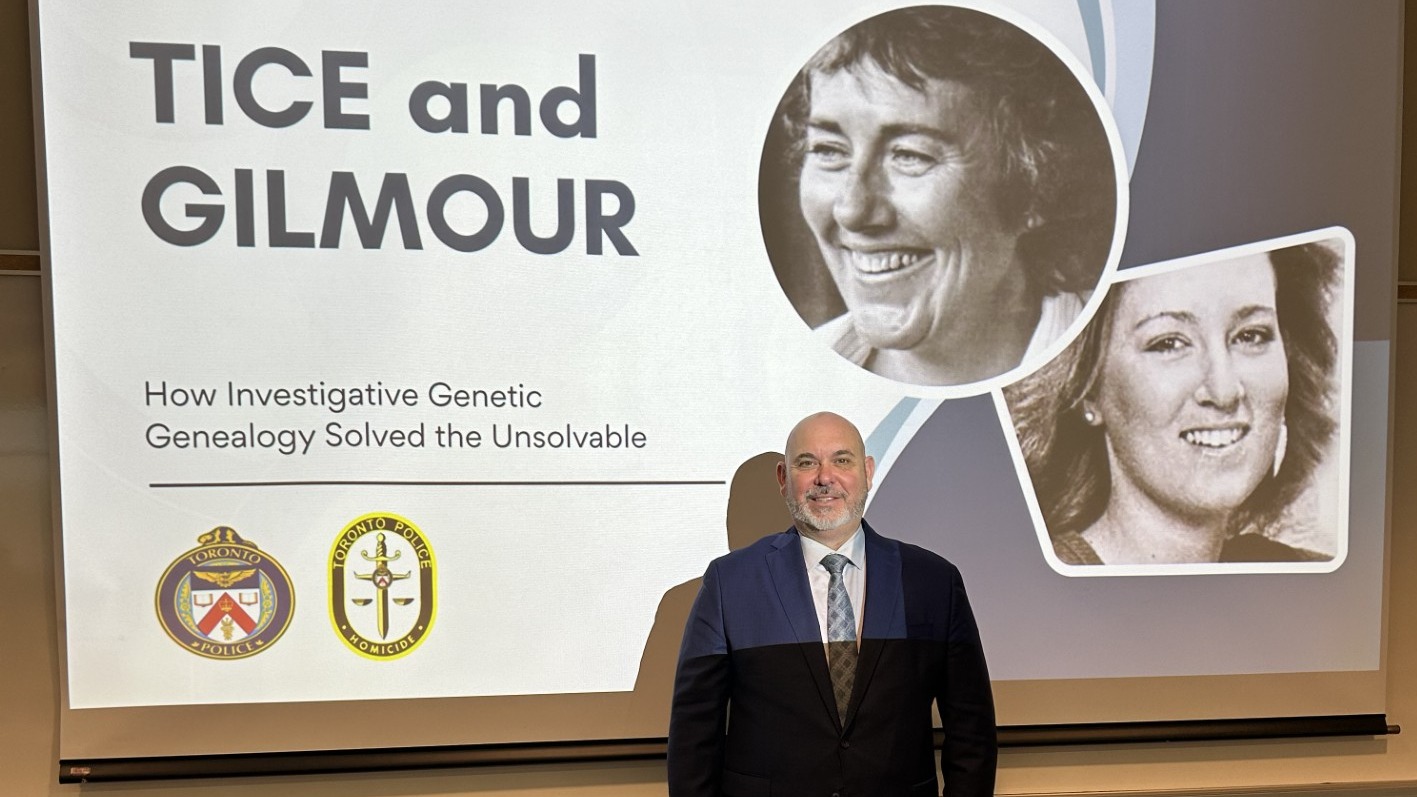Written by first-year Justice Studies student Savanah Lacey

By: Savanah Lacey
While my fascination with true crime may not be unique among my peers in Justice Studies, it's something that has captivated me since childhood. While other little kids were tuning into channels like YTV, Family, and Disney, I found myself glued to my mom’s TV screen, where she played shows like Forensic Files, The First 48, and Dateline NBC. This same fascination is what led me to pursue Justice Studies in the first place. After spending a year studying biological chemistry, I could tell that my heart wasn't fully devoted to it. I was at a loss for what to do with my life, but my steadfast interest in crime and criminal justice gave me the reassurance that transferring to the University of Guelph-Humber for Justice Studies could not lead me astray, despite my uncertainty about where I actually wanted to end up.
So, when I learned that Detective Det. Sgt. Steve Smith, a highly accomplished homicide investigator with the Toronto Police Service would be visiting Guelph-Humber as a guest lecturer, I was beyond thrilled. In a presentation open to all Justice Studies students, he was set to share insights about some cutting-edge investigative techniques Toronto Police have begun using to crack some of the most infamous cold cases in the city’s history. Needless to say, I couldn’t wait.
Det. Sgt. Smith’s presentation focused on the revolutionary technique of genetic genealogy, which he and his team have used to solve cases like the chilling murders of Susan Tice and Erin Gilmour, two homicides from the early 1980s that went without any leads for decades. He also explained how genetic genealogy differs from traditional DNA analysis: while forensic DNA typically identifies the unique markers of an individual, genetic genealogy analyzes aspects of DNA that are shared by family members in order to begin the construction of a genetic ancestral tree. This process helps narrow down a list of potential suspects, which investigators can then follow up on using more conventional methods. What truly amazed me was how genetic genealogists still rely heavily on traditional investigative methods and open-source databases to fill in the gaps – proving that science and detective work are more interconnected than I had ever imagined.
As someone with a background in science and a passion for Justice Studies, I found this blending of disciplines particularly fascinating. It opened my eyes to the many career opportunities where I wouldn’t have to choose between my two interests. It's easy to forget that there are paths where both fields can intersect, but Det. Sgt. Smith’s talk was a powerful reminder that stepping beyond traditional career boundaries can lead to exciting and unexpected opportunities. He also managed to connect the disciplines of genetic genealogy and homicide investigation to issues within politics, technology, and social advocacy, all of which are other areas of non-traditional intersection that I’m sure sparked a similar interest in many of my Justice Studies peers.
Looking back, I’m incredibly grateful to have had the chance to attend Det. Sgt. Smith’s lecture. Being able to engage with professionals I admire so deeply continues to add a level of enrichment to my university experience that I never anticipated was possible. It almost felt as though I was attending a more detailed, interactive true crime documentary, and given my childhood fixation on true crime, it was certainly an experience I know I’ll never forget.

